
Greece vs Turkey: Which Travel Destination is Right For You?
March 7, 2020
Two countries with Mediterranean spirit and unique cultures, cusines, and cities. Amazing travel awaits you whether you choose Greece or Turkey.
Here's our guide to help you choose which destination is right for you!
Jump to
Greece overview | Turkey overview | Landscape | Highlights of Greece & Turkey | Budget | Transportation | Food | Culture | Weather & Climate
Greece Overview

Cradle of western civilization, Greece is on the tip of the tongue for history and archaeology lovers. And why not? Not only will you be awed by the sublime grandeur of Greece’s ruins and monuments, but you’ll be struck speechless by the country’s natural beauty.
Feel the passion, dine heartily, learn … and then learn some more about the myths and lore that define this Mediterranean powerhouse. From its festivals to its cultural treasures, sybaritic beach life to renowned kite-surfing and rock-climbing destinations, Greece wears many hats for the world traveler.
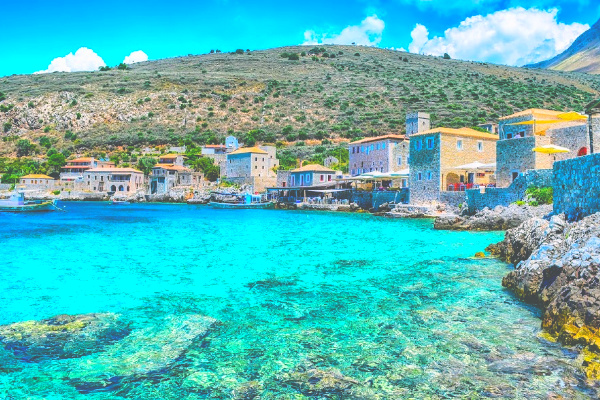
If it’s a hedonistic, laid-back island vibe you’re seeking, then by all means, choose Greece for the dreamy isles. And if you want a shot of history, it’s easy enough to tack on an Athens tour - just to say you didn’t lie on the beach your whole vacation (not that we think there’s anything wrong with that!).
Greece is the clear choice for travelers who want to live life to the fullest, to celebrate big and to linger over tables with free-flowing ouzo for hours with friends, new and old.
Turkey Overview
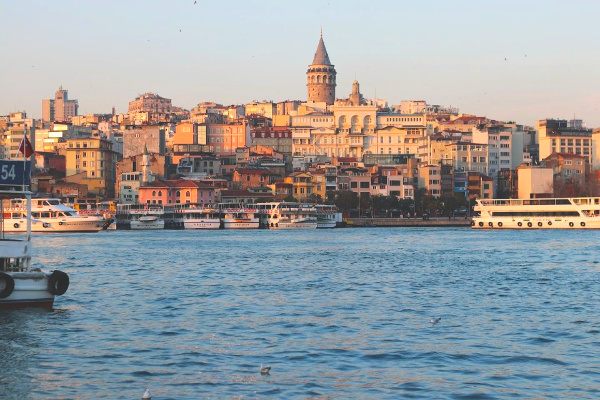
In Turkey, you truly have it all - beautiful beaches, rugged mountainscapes, tasty food, a rich history and culture and intriguing Istanbul. History buffs are bound to be happy touring Turkey, from ancient Ephesus to Topkapi Palace.
Everywhere you look, there are ruins and monuments that speak to a mosaic of influences over the centuries, including the Romans, Byzantines and Ottomans who stopped over here as they traveled along the Silk Road.

Adventure-seeking travelers to Turkey are in for a treat as well. The country’s diversity of landscapes lends itself to all manner of outdoor activity - think kayaking (over the sunken ruins of Kekova, no less) and rafting through epic gorges, or hot-air balloon rides over Cappadocia.
Walk along the famous Lycian Way trail, go diving or take a traditional gület cruise on the Aegean Sea. From Lake Eğirdir to the Kaçkar Mountains to Patara Beach, from Asian Anatolia to the cliff-lined Mediterraean coast, Turkey is great for active travelers who want a side of culture and history.
Landscape

Are you looking for beach days and heart-pounding adventures? Consider a trip to Greece or Turkey.
As much as we’d like to offer you a clear cut answer to the question, “Should I travel to Greece or Turkey?,” when it comes to landscape, they’re a pretty well-matched couple. Let’s break it down …
Greece, like Turkey, offers several different landscapes in one country. However, Greece often comes out ahead when it comes to sybaritic beach holidays - if only for its fame and reputation. Travelers have long been drawn to the admittedly gorgeous Greek Isles, part of 6,000 islands and islets throughout the Aegean and Ionian seas.
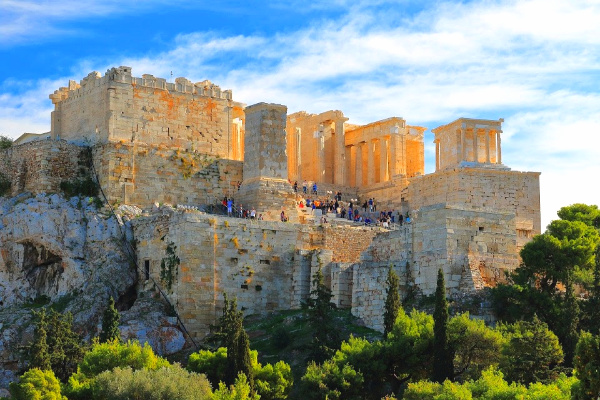
Sun-seeking travelers flock to Crete, Rhones, Corfu, the Dodecanese and the Cyclades for gorgeous beaches, splashy resorts, quiet villages, party towns and seaside promenades.
There are quieter, less often visited islands, too, for those seeking a more private Greek beach holiday: If that’s more your speed, consider a Greek Isles tour of Koufonisia, Simi, Lipsi, Othonoi, Kastelorizo or Gavdos.
Back on mainland Greece, there are two main geographic areas: the region that extends from central Greece to the region of Thrace in the north, and the Peloponnese peninsula, which is separated from the mainland by the Corinth Isthmus canal.
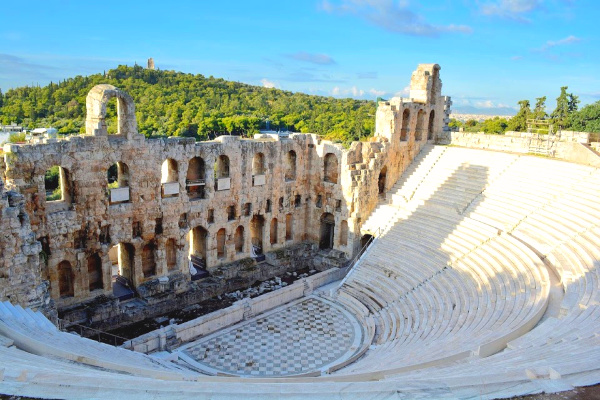
It may surprise you to know that 80 percent of Greece is marked by mountains or hills, making it one of Europe’s most mountainous countries. And yet, there are nearly 10,000 miles (16,000 kilometers) of coastline - an unparalleled combination on the continent, and another plus in the Greece vs. Turkey travel conundrum.
And yet … here comes Turkey, with its own staggering array of landscapes.
If you want to knock two continents off your bucket list, choose Turkey. It’s a country that straddles two continents, with its Thrace region in Europe, and the rest, including the Anatolia region, in Asia. (Istanbul, famously, sits on two continents, separated by the Bosphorus Strait.)
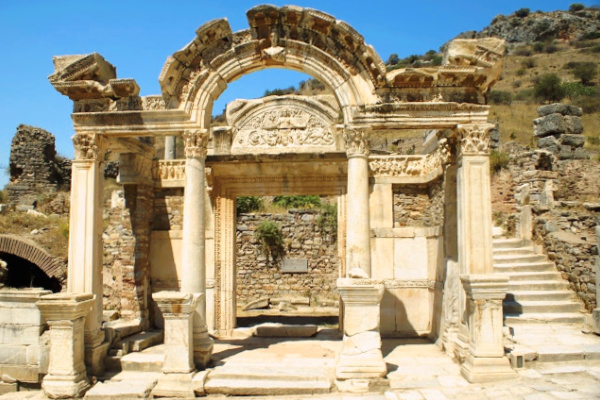
There’s every kind of geography you can think of in Turkey, from lush green forests, to turquoise coastlines, beautiful beaches to vast highlands. In fact, if it’s beaches you’re after, Turkey’s are just as stunning as Greece’s, but much less populated.
If you love lakes and rivers more than seas, Turkey is the right choice - there are countless lakes throughout the country, including the largest, Lake Van, and mighty rivers, from the Kizilirmak to the Euphrates and Tigris, with both originate here.
A plus for Turkey - because it’s at the confluence of three climatic zones, the landscape supports a huge variety of flora. Turkey is the winner for naturalists and travelers who thrive on flora and fauna.
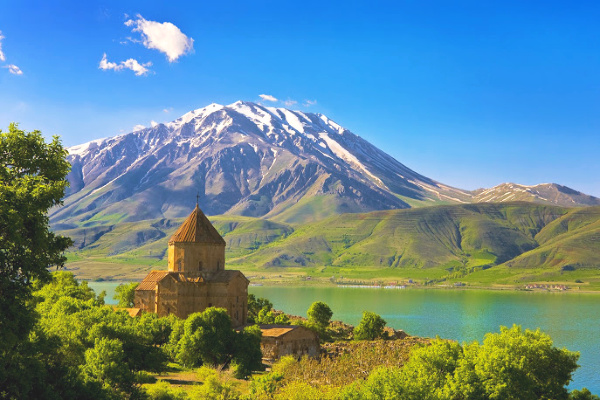
When comparing urban areas, some will say that Athens is significantly dirtier and overrun than Istanbul, for example. Both cities offer a pleasing blend of ancient and modern architecture, and Turkey has the added appeal of an Eastern influence.
From ancient cities and their requisite ruins to hiking volcanoes, wreck diving, boating, cycling, sightseeing and sunbathing, both Greece and Turkey offer a veritable geography lesson in landscapes. In this case, you simply can’t go wrong.
How well do you know the world?
Play the gameContinues below
...continued
Greece & Turkey Highlights
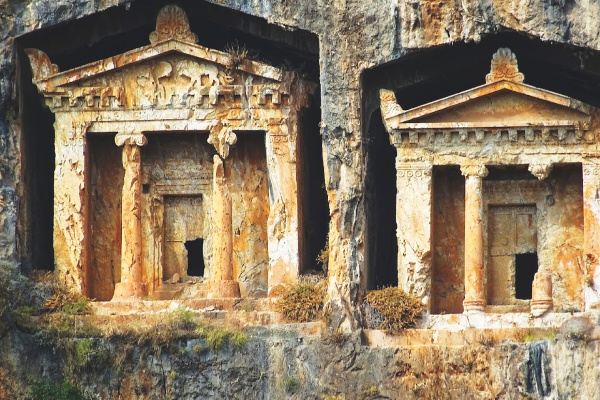
The list of highlights in Greece and Turkey is long … here’s a peek at each country’s top sights and what you should try to add to your tour itinerary to either of these naturally and culturally gratifying destinations.
What You Need to See in Greece
The be-all and end-all of Athens sightseeing, the Acropolis is a must. It’s the country’s icon, a hallmark of western civilization and an excellent starting point for your tour of the ancient city -find the Parthenon, Ancient Agora, Roman Forum all nearby.
If you can visit only one of the Greek Isles, make it dramatic Santorini, with its trademark white-washed Cycladic architecture. The island’s cliff-top towns of Fira and Oia are unabashedly romantic. And because it’s Greece, you can’t help but stumble upon an archaeological treasure, in this case, the ancient Minoan settlement site of Akrotiri.
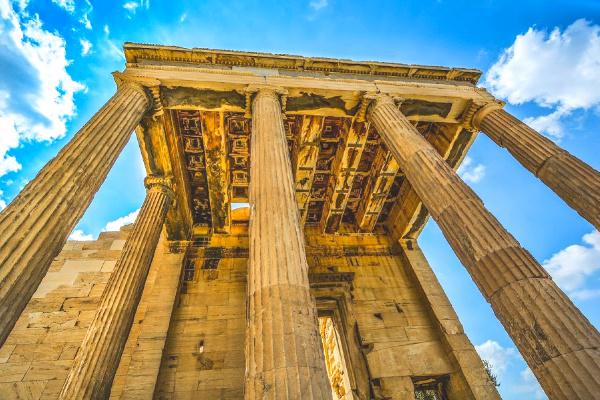
3. Delphi
Look for Greek tours that include the chance to visit Delphi, a UNESCO World Heritage Site on the Greece mainland. In days of old, people came here to worship Apollo and ask for advice from the Oracle. The ruins date from the 8th century BC to the 2nd century AD.
4. Nafplio
Join the upper echelon of Greek society in beautiful Nafplio, considered by many to be the prettiest town in Greece. The old town is car-free, making it easy to stroll about and gawk at the Neoclassical mansions and churches. Look up and notice the Palamidi Fortress above you.
5. Knossos
Discover Europe’s oldest city, once a legendary Minoan kingdom. The kingdom is thought to have been destroyed by volcano and tsunami, but you can get a glimpse into the advanced technology and thinking of the era, thanks to the excavations that started in 1878.
See more Top Attractions in Greece »
What You Need to See in Turkey

1. Istanbul
Savor the multicultural ambience of this ancient city and explore the Hagia Sophia, Topkapi Palace and Grand Bazaar. It’s not hard to imagine yourself at the crossroads of the world in ancient times.
2. Cappadocia
Fascinating Cappadocia offers surreal landscapes you won’t see anywhere else in the world. Tour this off-the-beaten-path region of Turkey, snap unbeatable photos of strange rock formations, explore underground cities and cave towns and take a hot-air balloon ride (this is one of the top places in the world to ride in a hot-air balloon).

3. Ephesus
Turkey’s Ephesus competes with Greece’s Acropolis for star power when it comes to ancient ruins. Tour this ancient Roman city and its melting pot of Greek and Roman ruins, including the renowned Celsus Library.
4. Pamukkale
Include this natural wonder on your guided Turkey tour - its name translates to “Cotton Castle” and with its cascading white travertine, it looks just like that. While you’re here, visit the ancient spa town on Hierapolis.
5. Mount Nemrut
Eastern Turkey tours typically include Mount Nemrut’s strange summit funerary, where you’ll see the ruins of the huge god statues. There’s a peculiar, otherworldly feel as you come face to face with the giant stone heads, tumbled across on a barren mountainscape.

Continues below
...continued
Budgeting Your Greece or Turkey trip

Should you choose Greece or Turkey for a budget-conscious guided tour? Generally speaking, Turkey is the cheaper country to visit. The cost of living is 33 percent cheaper than living in Greece.
That said, off-season travel to both Greece and Turkey is going to be significantly less expensive than high season, and there are many ways to cut costs, i.e. don’t stay at a lavish resort, eat more street food and less often at tourist-trap restaurants, use ride-share services to get around.
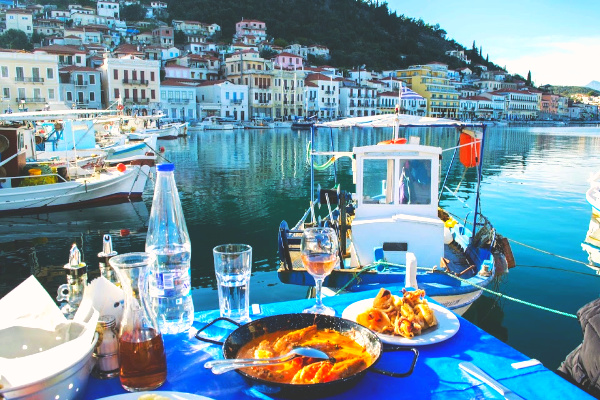
If your heart is set on the Greek Isles, but you need to keep costs down, look for guided tours on Naxos, Paros and Amorgos in the Cyclades and avoid the perennially expensive Mykonos and Santorini. You won’t pay the premium resort and sightseeing prices on these popular islands, yet will be rewarded with all the same Mediterranean beauty.
When budgeting your Greece or Turkey vacation, keep in mind that a lot rides on the style of travel to which you are accustomed. If you have a lot of travel funds saved up and you’re looking for a lavish, Mediterranean island paradise, choose Greece.
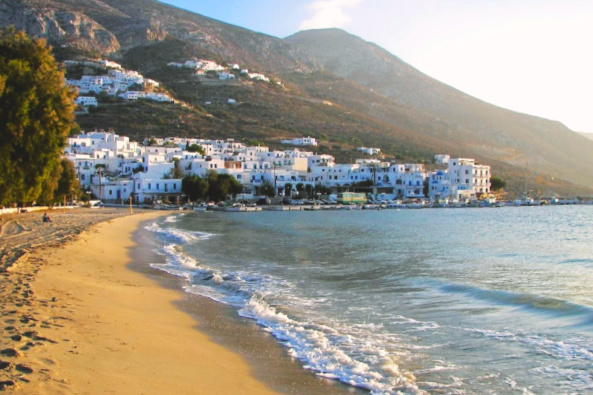
If you want to save money wherever you can and still feel like you’re not missing out on the country’s treasures, choose Turkey. (And perhaps save up for a life-changing hot-air balloon ride as a special treat.)
Shoppers, keep in mind that the exchange rate of the Turkish lira is usually more in favor of the American traveler than the Euro, used in Greece. So if you love to shop for souvenirs, Istanbul’s Grand Bazaar and its thousands of trinkets and treasures, is not to be missed.
Connect & Share
"Greece vs Turkey: Which Travel Destination is Right For You?"
Continues below
...continued
Greece vs Turkey: Transportation

How Do I Get Around in Greece?
You’re headed to Greece to combine Acropolis exploration with lively nightlife in the Greek Isles. So how will you get between your different destinations in Greece? And how will you travel locally when you get there?
Hop a domestic flight - book well ahead of time for high season - and save a ton of time. If that’s not in the cards, or you’d like to experience more of the Greek landscape, consider the bus. It’s an efficient, more value-friendly alternative to air and available between just about all cities and towns. Taxis are readily available and cheaper than in most of Europe. Within Athens, utilize the metro subway system.
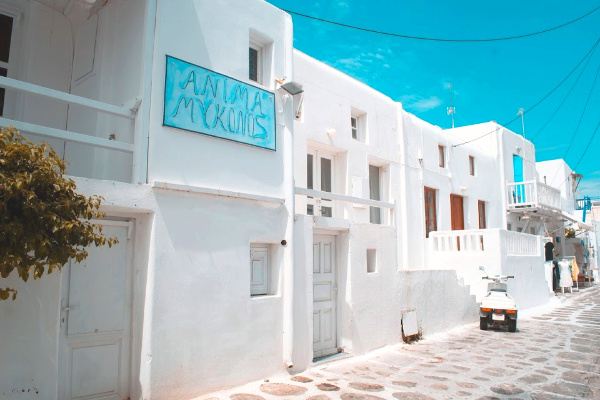
If the islands are in your Greek tour plans, definitely opt for ferry service, hydrofoil or overnight boat. You’ll practically be able to hear yourself unwind as you head out to sea.
And who doesn’t picture themselves zipping around on a moped in the Greek Isles, wind whipping through your hair? If that’s you, consider a reasonably priced moped rental (or just go with a car), but be sure to research local road rules to keep everyone safe.
How Do I Get Around in Turkey?
You’ve chosen Turkey because you simply can’t shake the dream of a hot-air balloon ride over Cappadocia, and you keep hearing about the unspoiled beaches of the Butterfly Valley. What kind of transportation can you expect as you tour Turkey from one continent to another?
Train travel is extremely popular in Turkey, making it easy to zip from place to place in this relatively large country. The country’s well-developed rail system has worked hard to make your experience comfortable and efficient. Look for high-speed trains between Istanbul, Ankara, Konya and Eskisehir, including sleeping-car trains.

Choose bus travel in Turkey if you’d like to save money and have the extra time. Modern, comfortably outfitted buses operate between Turkish cities and towns daily - every destination has its own bus station. Expect standard amenities like free Wi-Fi, televisions, steward service, complimentary snacks and drinks as well as regular rest stops.
Within each town and city, there are public buses, for which you can pre-load a smart ticket (which can also be used for the metro, tram and ferries). Public minibuses (dolmus) run in many destinations - look for the route name on the front screen.

They’re a great taxi alternative. If you do prefer a taxi, hail one at a designated taxi stop - it’s the law that each taxi has an on-board meter, but you can expect a set price for longer trips between cities.
Turkey’s well established public transport system also includes underground and surface metro trains, as well as overground trams.
Food in Greece & Turkey

You’ll find that Greek and Turkish food actually has quite a bit in common. You’ll find overlap on menus throughout the country, including dishes like baklava, kebabs, musakka and the like. The spelling may be different (dolma in Turkish vs. dolmades in Greek), but the culinary traits are much the same.
Of course, as various dishes originate and travel throughout time and space, different characteristics are born, varying spices, so while the differences may be minimal, with enough time spent eating in both Turkey and Greece, your tastebuds will recognize the distinctions. Case in point - foodies will be able to distinguish Turkish food for its stronger spices, including saffron, paprika and cumin.

In both Turkey and Greece, food is culture. You’ll learn just as much about each country’s values and personality from what you’re served at table as you will touring the countryside and streets of Istanbul.
It’s all going to be tasty, so let’s start with a few tasty treats not to miss in Turkey:
- Doner kebabs a
- Turkish delight
- Çay (apple tea)
- Manti (Turkish ravioli)
- Mezze (small plates, including herbed yogurt, hummus, dolmas, kofte, cheese and more)
- Karniyarik (stuffed eggplant)
- Sweet, spicy Turkish coffee

Just as in Turkey, in Greece, foodies rejoice. The cuisine throughout your Greek tour will include a fair amount of feta and olive oil, to be sure, but pay attention to the regional specialties and cooking styles, depending on which part of the country you’re in.
This might mean fish straight from the sea, cheese with honey, Italian-influenced risottos, salad greens you’ve never tasted, ouzo-steamed mussels … hungry yet?

Here are some bites to savor when you’re eating throughout Greece:
- Taramasalata (fish roe dip)
- Local olives
- Dolmades (every region of Greece has its own variation on these)
- Moussaka (eggplant, lamb, tomato, potato, cinnamon, béchamel sauce = dreamy)
- Grilled meats, from souvlaki (skewered pork) to gyros
- Fresh fish
- Feta (and all the cheese, really, including graviera and mizithra)
- Baklava (which, actually, originated as an Ottoman Turkish sweet that was passed on to the Greeks)
- Retsina wine
It’s important to note, however, that pork is not eaten in Turkey, so if you really must have it, opt for Greece.
Continues below
...continued
Greece vs Turkey: Culture

In a nutshell, Turkey and Greece share many cultural, culinary and historic similarities. If you are looking to relax on the beach and don’t mind the hordes of other tourists, opt for Greece.
However, if you prefer a quieter sightseeing scene and a more otherworldly ambience (think tufa rock, underground cities, tunnels and caves in Cappadocia) at the crossroads of the world, opt for Turkey.
If you’re a mythology buff or Rick Riordan fan, definitely consider a guided tour of Greece, the cradle of western civilization and a veritable treasure chest of cultural findings. Explore the Acropolis of ancient Athens and Delphi, Apollo’s place of worship.
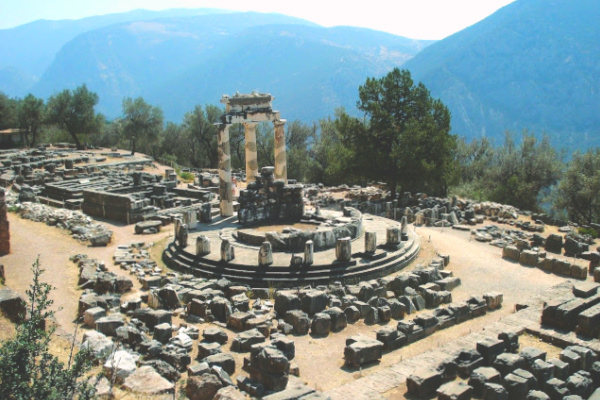
Visit the site of the Pythian Games. Explore the Roman ruins of Corinth. Gaze at the murals of thousand-year-old Knossos. Spend a day at the National Archeological Museum of Athens and marvel at its priceless artifacts, including the Artemision Poseidon, a sculpture dating back to 460 BC.
Greece is rich in archaeological sites, monuments and museums that will give history buffs unbeatable insight into the Greek civilizations from the prehistoric era through modern times. Cultural Greek tours focus on art history and technology accomplishments, folk culture, music, dance, theater, poetry and more, celebrating and preserving the traditional heritage of the country.
If you must satisfy the urge to delve into the minds of the Greek gods, goddesses and philosophers of ancient days, choose Greece.

Over in Turkey, archaeology and architecture fans will find much to love, although there is admittedly less history found than in Greece. Instead, focus on the unique blend of Eastern and Western culture, evident through Turkey’s cuisine, religious practices, architecture and art scene.
Explore the whirling dervishes and Sufism. Visit the Blue Mosque in Istanbul. View the scattered statue heads at the mountain of Nemrut. Get lost in the Grand Bazaar and the Sultanahmet district. Some travelers find that Istanbul, on the whole, is cleaner and less crowded than Athens - the same goes for many of Turkey’s archaeological sites.
If you want quieter, cleaner ruins, choose Turkey and include Ephesus on your itinerary - it includes some of the best-preserved ruins in the world, as well as the Temple of Artemis, one of the Seven Wonders of the World. If you crave a multicultural setting, Turkey is a great choice - the Turks are welcoming, friendly and passionate about the natural beauty of and blend of cultures their country offers.
Weather/Climate in Greece & Turkey
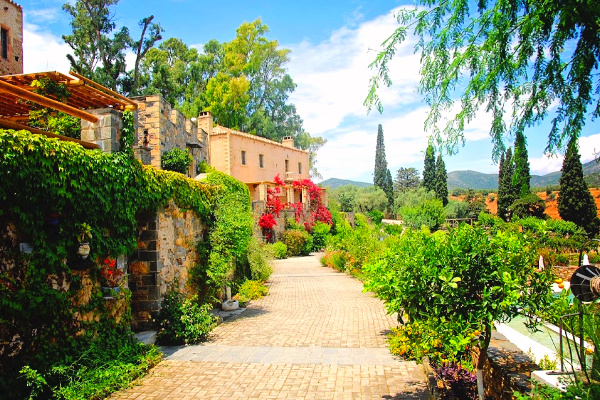
Separated by just 350 miles, both Turkey and Greece offer a Mediterranean climate with ample sunshine, limited rain and mild temperatures. Overall, the best time to visit both countries is springtime, before it gets too hot and crowded, between mid-April and mid-June. Peak season is early summer through early September.
Turkey does offer four distinct seasons - keep in mind, too, that with diversity of landscapes comes diversity of weather patterns, so consider where you will be going on your Turkey tour as you are packing. Spring (March through May) is a lovely season to visit Turkey as the crowds are fewer and pricing is more competitive than the high season.
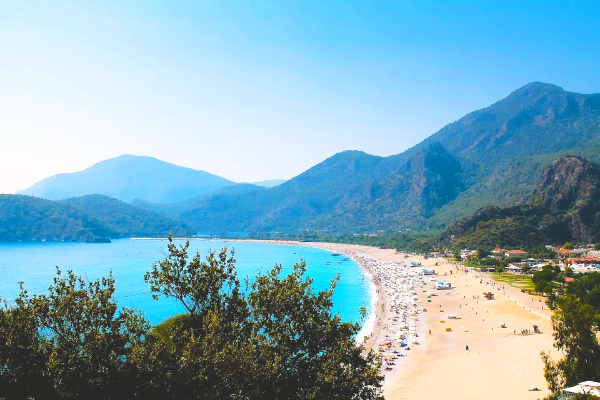
You may experience a bit more rain in April than in other months of the year, but if you’re prepared, this won’t be a problem. If you’d like a beach vacation on the Aegean or Mediterranean, aim for summer - June through August - when the temperatures are warmer and the seaside towns come to life. The upside to more people flocking to the beach during the summer is that the cities, as well as Cappadocia, are less crowded.
Heading into fall (September - November), the water is still warm and the beaches are lovely, but you’ll find fewer people traveling and lower prices throughout Turkey. Winter, from December through February, means lower temperatures, but fewer tourists, better prices and the unique opportunity to experience Turkey’s winter sports and local life (as expected, this is high season for the ski resorts, so those prices, in particular, will be higher).
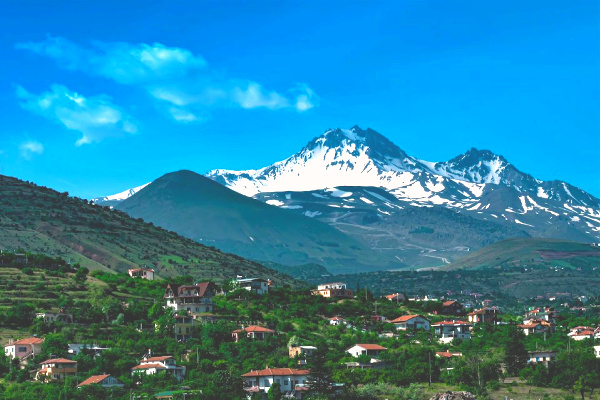
Greece, too, offers the frequent sunshine, limited rain and mild temperatures of the Mediterraean, but just as with Turkey, the variation in landscape means an array of weather patterns throughout the country.
The dry, hot days of summer aren’t oppressive, thanks to the season winds (meltemi), and the mountainous regions offer cooler temps. Winter means snow in the mountains, but a minimum of snow and ice in the lowlands.
Overall, Greece has three separate climate zones, so consider where your tour will be headed and what you’d most like to do during your vacation. In the islands of the Aegean, Attica and Crete, you can expect summer sun, cooling meltemi winds and little rain. Winter brings rain and lower temperatures.

On the mainland, which comprises Peloponnese, Thessaly, Epirus, Macedonia and Thrace, the summer is hot, with occasional rain. Winters mean thunder and snowstorms. Expect to see snow atop the Pindos and Rhodope mountain ranges from fall through spring.
Let’s review some advantages to choosing a guided tour of Greece over Turkey: Greece is safe to visit, offers a variety destinations, has an amazing breadth of history to discover, has loads of beaches and islands for the sun-worshipper and has adventures for every season.
It’s a winner for a relaxing holiday with family and friends. On the other hand, Greece is more expensive than Turkey and can be quite crowded during high season.
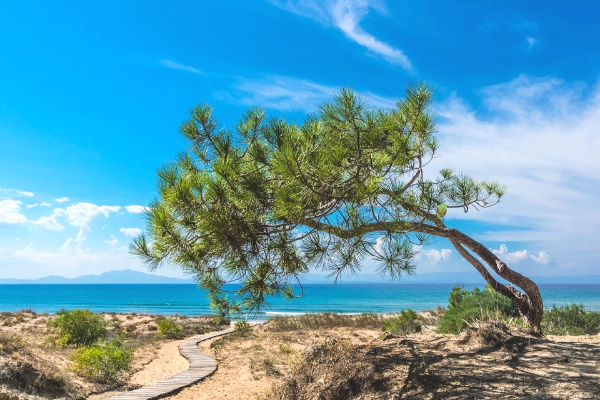
On the flip side, choose Turkey over Greece for your vacation if you want cheaper prices on everything from sightseeing attractions to hotels to airline tickets, and also want a variety of places to visit in one country.
There is an exotic feel to a Turkish vacation, what with the whole two continent thing, so if you’re up for worldly adventures, give it a whirl(ing dervish).
Keep in mind that Turkey is a slightly riskier destination on the safety scale, so if personal security and being absolutely certain your trip will not be cancelled or modified in some way due to security threats, choose Greece.
Have you made your choice? No?
Visit both:
Search guided tour options in Turkey and Greece.
Thinking it's still a one-country trip for you?
Recent posts









